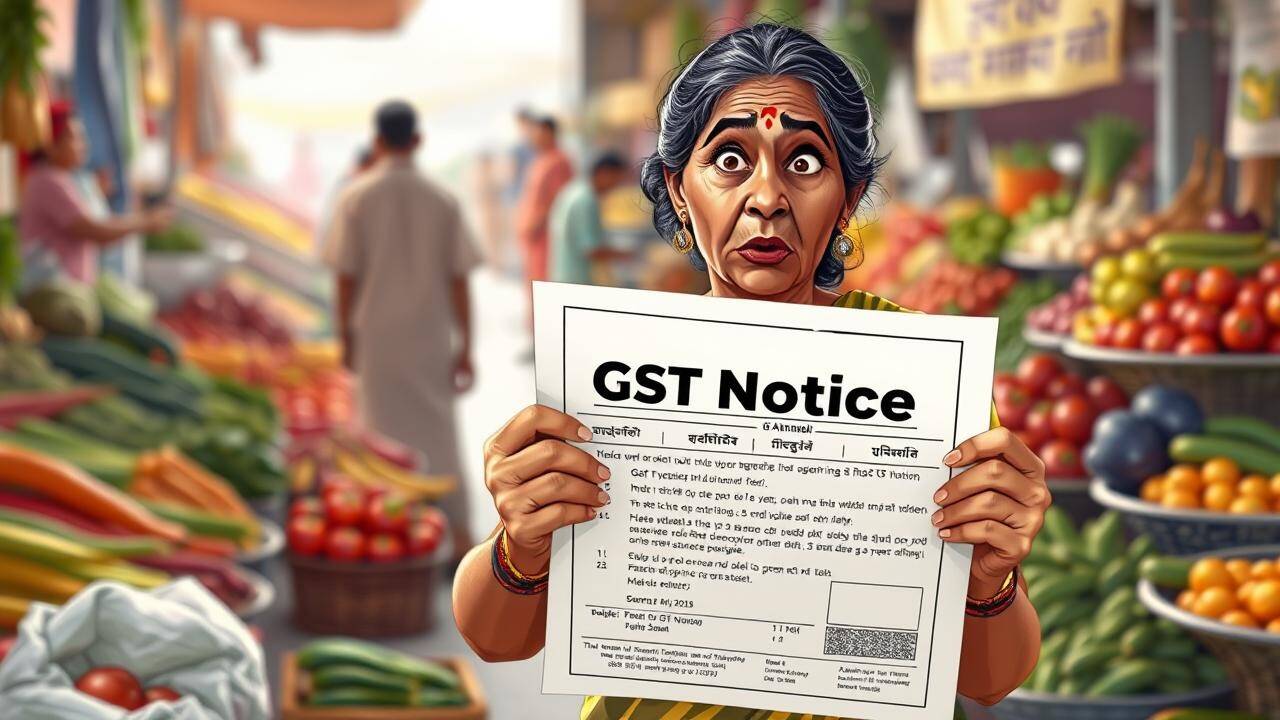Small Traders in Karnataka Face GST Concerns Over UPI Transactions
Small-scale traders and merchants in Karnataka have raised significant concerns following the issuance of Goods and Services Tax (GST) notices by commercial tax authorities. These notices are related to UPI transactions exceeding Rs 40 lakh per year, leading to widespread apprehension among small vendors. They have collectively urged the authorities to withdraw these notices and provide some flexibility in enforcing these regulations.
The situation has become more prominent as reports suggest that many vendors in Bengaluru are now refusing to accept UPI payments, opting instead for cash transactions. This shift is a direct response to the growing pressure from tax notices, which have left many small traders in a difficult position.
One such trader, Shankar Gowda Hadimani, a vegetable vendor from Haveri, shared his distress after receiving a tax notice of ₹29 lakh from the Bengaluru Tax Office. According to an ANI report, he explained, “Since there are no GST rules on fruits and vegetables, I did not register for a GST number. But I got a notice to pay Rs 29 lakh in taxes for a business of over Rs 40 lakh. The officials have told me that if it is proven that I have done so much business in vegetables, the notice will be withdrawn.”
Tolong support kita ya,
Cukup klik ini aja: https://indonesiacrowd.com/support-bonus/
Abhilash Shetty, representing the Karnataka Pradesh Street Vendors Association, highlighted the challenges faced by small businesses. He stated, “Small businesses operate with a margin of 5 to 10 percent. The tax (GST) along with other things like penalties comes to 50%, and it is not possible for the vendors to pay such a huge tax with this. We request the government to interfere and give relaxation to the small vendors in this matter.”
Shakuntala, the legal counsel for the association, echoed these concerns while criticizing the authorities for not adequately informing small vendors about their taxation responsibilities during business registration. She remarked, “If taxes are being imposed, why were they not educated first? When they took the registration, they should have been made aware about the taxes on selling of goods, revenue.”
The issue has also drawn criticism from the BJP, which has condemned the issuance of GST notices for UPI transactions in Karnataka. BJP spokesperson Amit Malviya accused the Congress government of targeting small businesses. He stated, “Congress is destroying small businesses in Karnataka. In a recent mindless crackdown, Karnataka GST authorities have issued heavy-handed notices to small vendors under the pretext of GST evasion — many running into lakhs of rupees. The data from UPI transactions is being weaponized to raise arbitrary tax demands. As a result, thousands of small traders in Bengaluru are now abandoning digital payments altogether. This is not just harassment — it is economic sabotage.”
Malviya further emphasized that under GST law, the burden of proof lies with the tax officer, not the trader. He questioned, “Why then is the Congress government unleashing this coercion on those who form the backbone of our economy? This is nothing but a desperate attempt to fund their freebie culture. And yet, Rahul Gandhi has the audacity to claim he stands with small businesses.”
This ongoing dispute highlights the need for a balanced approach to taxation that supports small businesses without imposing undue financial burdens. It also underscores the importance of clear communication and education for small vendors regarding their tax obligations. As the debate continues, the focus remains on finding a fair solution that protects the interests of small traders while ensuring compliance with tax laws.







